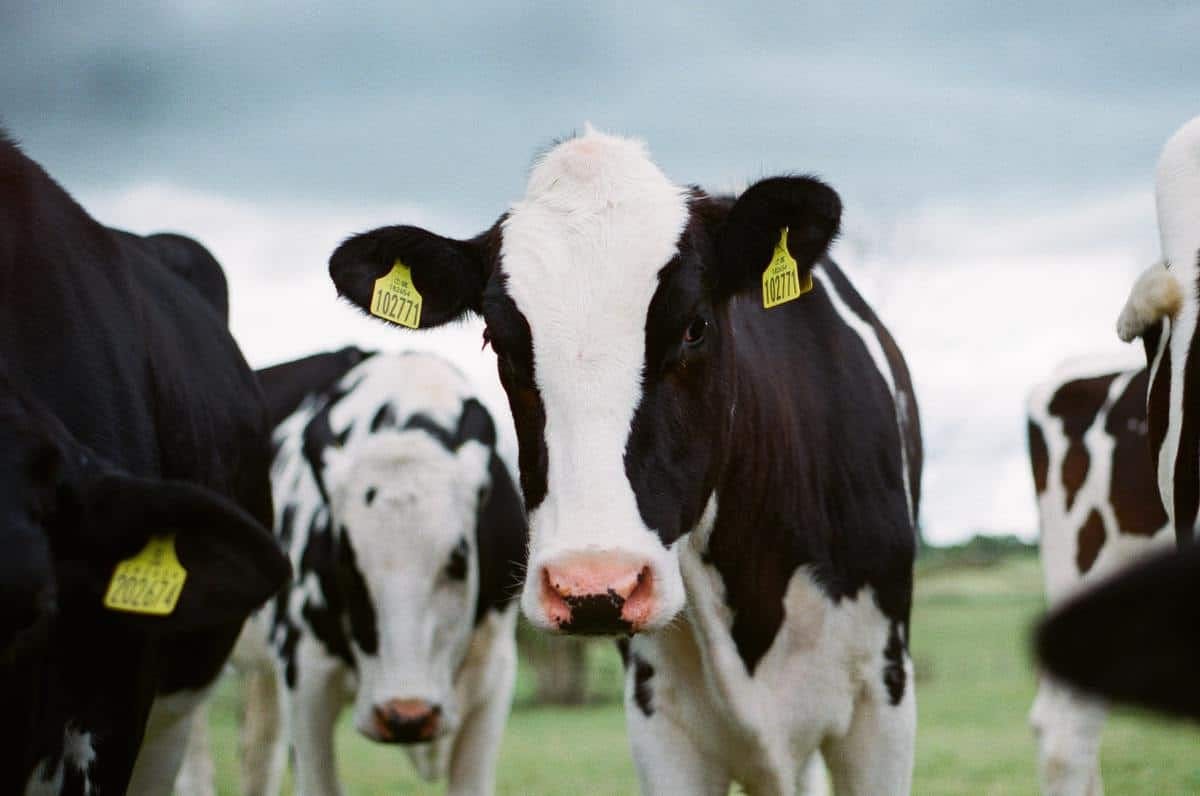Australian dairy industry representative, Dairy Australia, has committed to reducing the industry’s environmental impact. Its report “30 Ways Australian Dairy is Tackling Climate Change” showcases the steps the Australian dairy industry has taken to go green.
The report summarises the innovative and impactful measures farmers are taking in moving towards net-zero carbon emissions in their dairy production.
Dynamic Business spoke to Helen Dornom, General Manager of sustainability at Dairy Australia, to ask why sustainability matters to the future of Australian dairy.
Dairy industry emissions
The dairy industry is one of Australia’s most important agricultural sectors and, according to Agriculture Victoria, contributes around 19% of Australia’s agricultural emissions.
Not only do dairy farms contribute a significant amount of emissions, but the full effects of climate change will also be felt directly by the dairy industry. Dairy Australia is enthusiastic about moving the industry in a direction that mitigates the impact of climate change by cutting off emissions at the source.
Ms Dornom said, “Dairy farmers are at the front-line of dealing with the impact of climate change from changing pasture growth patterns, reduced rainfall, heat impacts on milk production and an increase in extreme events like fire, flood and drought.
“Many are adapting their farm system to continue to thrive, while at the same time, mitigation efforts are becoming a key part of business.
“With this, comes the challenges of continuing to provide sufficient milk to meet global market demands and improve productivity.
“The Australian dairy industry is committed to researching and uncovering ways that see farmers financially thrive while also reducing their environmental footprint.”
Why is sustainability in the dairy industry so important?
Sustainability is front of mind for the agricultural sector. For the dairy industry, sustainability means more than reducing emissions; it means making impactful changes for good on every front.
“Sustainability is about keeping dairy in business for the long term and improving our resilience to meeting challenges as they come, including a changing climate. But more than that, it’s about doing the right thing by our people, our animals, the planet and our communities,” said Ms Dornom.
The report outlines four categories in which agriculturalists can act:
- Emissions reduction
- Efficient use of land and water
- Efficient use of energy and resources
- Responsible management of waste products
Change of practice within dairy farming will be vital to the long term prosperity of the industry.
Ms Dornom continued: “Australian dairy promises to provide nutritious food for a healthier world through a sustainable food system which means being part of local and global efforts to address the world’s biggest sustainability issues.
“Being committed to implementing sustainable practices builds confidence in the integrity of dairy foods, enhances community trust, rewards dairy people, and produces nutritious food that the world wants. It also helps maintain access to markets and investments.”
What does sustainability mean in the dairy industry?
The Australian dairy industry is internationally regarded as one of the world’s best dairy producers. This reputation is one Dairy Australia is keen to uphold. In a climate aware world, meeting sustainability benchmarks and aiming for net-zero emissions is paramount to proving best practices.
Ms Dornom said, “Sustainability for Australian dairy means delivering on our promise to provide nutritious food for a healthier world by:
- creating rewarding livelihoods for our people and our communities
- nourishing consumers with safe, nutritious food
- providing best care for all our animals; and
- leaving the environment in better shape for the future.
The Australian Dairy Industry Sustainability Framework is the key mechanism through which industry responds to expectations of customers, consumers, investors and communities and provides proof for Australian dairy’s reputation as a global leader in sustainable food.”
Benefits of greener dairy
Greening Australian dairy will come with many benefits for both producers and consumers. For producers, a healthier environment will mean maintained high-quality dairy production.
Ms Dornom said, “Being more environmentally conscious benefits dairy farmers in several ways, from protecting the natural resources essential to producing quality milk, to keeping up with consumer expectations and helping to maintain market access for dairy foods.”
For consumers, a sustainable dairy industry will ensure the high standards to which Australians are accustomed will be maintained. Supporting sustainable Australian dairy will ensure the stability of Australia’s dairy sector into the future.
“Purchasing Australian dairy products over imported products directly supports the Australian dairy industry and its farmers. This allows the supply chain to further invest in greener practices and encourages the rest of the agricultural industry to do their part in ensuring our environment is protected for future generations.
“By purchasing dairy products made from Australian milk, you’re helping to support local Aussie farmers and an industry committed to sustainable production. Driving money into the local industry allows for ongoing investment and effort in sustainable practices,” said Ms Dornom.
Read more: Australian dairy industry shifts its focus from China to Southeast Asia
Read more: RaboBank partners with Coles Group to deliver sustainable finance
Keep up to date with our stories on LinkedIn, Twitter, Facebook and Instagram.

